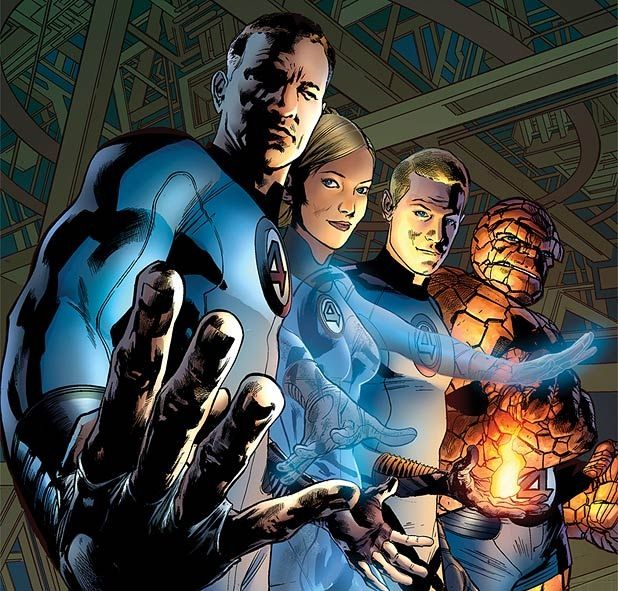In a peculiar twist of cinematic fate, even in the future, some patterns stubbornly persist. The year 2025 offered a compelling, if somewhat baffling, case study with the release of “The Fantastic Four: First Steps.” Despite garnering a notably positive reception from both professional critics and general audiences, the film experienced a precipitous drop in its second week at the domestic box office. This paradox raises pertinent questions about audience engagement and the evolving dynamics of the superhero genre.
Initial reports indicate that “The Fantastic Four: First Steps” debuted with a respectable $117.6 million in its opening weekend. However, the subsequent week saw revenues plummet to just $40 million, marking a substantial 66% decline. This figure comfortably surpassed industry analyst predictions, which had generally forecast a more modest drop in the range of 55-60%. While not the absolute nadir in Marvel`s extensive filmography – “Captain Marvel 2,” for instance, experienced a 78% fall, “Captain America: Brave New World” 68%, and “Thor: Love and Thunder” 67% – the performance of “First Steps” still positions it among the more concerning second-week holds for the studio.
Key Box Office Figures for “The Fantastic Four: First Steps” (Domestic):
- Opening Weekend: $117.6 million
- Second Week: $40 million
- Second-Week Drop: 66%
- Analyst Prediction: 55-60% drop
What makes this performance particularly perplexing is the critical and audience consensus surrounding the film. “The Fantastic Four: First Steps” landed favorable scores, including a 7.4 out of 10 from users on IMDb and a 6.7 out of 10 on Kinopoisk. Such positive reception typically correlates with stronger audience retention and sustained box office momentum. Herein lies the irony: a film that audiences generally enjoyed, yet chose not to revisit or recommend with sufficient enthusiasm to stem the financial bleeding.
The Unseen Hand: Dissecting the Decline
Several factors could contribute to this curious disconnect. Firstly, the prevalent trend of front-loaded viewing for major tentpole releases cannot be overlooked. High anticipation often funnels a significant portion of the interested audience into opening weekend screenings, leaving fewer potential moviegoers for subsequent weeks. For a property like the Fantastic Four, with its storied, albeit somewhat troubled, cinematic history, initial curiosity might be high for a “fresh start” but perhaps not translating into enduring word-of-mouth that drives repeat viewings.
Secondly, the perennial question of superhero genre saturation re-emerges. Even in 2025, with a mature cinematic universe, audiences may be becoming increasingly discerning, reserving their sustained engagement for only the most groundbreaking or pivotal narrative events. A film titled “First Steps” might, ironically, imply a foundational rather than a standalone, exhilarating experience, inadvertently dampening its long-term appeal despite its quality.
Finally, the historical baggage associated with the Fantastic Four franchise, despite efforts for a complete reboot, might subtly influence perception. While the new iteration clearly resonated with critics and audiences in terms of quality, the brand`s previous cinematic missteps could linger in the collective subconscious, perhaps making some viewers hesitant about committing to the long-term journey, or simply less inclined to push for repeat viewings.
Implications for the Marvel Cinematic Universe
The case of “The Fantastic Four: First Steps” provides a valuable, if somewhat sobering, lesson for Marvel Studios and the wider film industry. It underscores that even a well-received film, featuring beloved characters, is no longer immune to significant box office volatility. Initial positive buzz and critical acclaim, while important for setting the tone, do not inherently guarantee sustained financial success in a rapidly evolving entertainment landscape.
This scenario suggests a potential shift in audience behavior: high opening weekends fueled by intense anticipation, followed by rapid attrition unless the film offers truly exceptional reasons for a return visit or fervent advocacy. For the MCU, this could necessitate a strategic re-evaluation of release schedules, marketing approaches, and perhaps an even greater emphasis on delivering narratives that compel audiences beyond the initial “must-see” weekend. The challenge, it seems, is no longer just about making good films, but about making films that resonate deeply enough to defy the gravitational pull of fleeting attention spans.
As the cinematic future unfolds, “The Fantastic Four: First Steps” will undoubtedly be studied as a curious anomaly: a narrative success that, ironically, highlights the ongoing puzzles of commercial viability. It serves as a stark reminder that in the complex world of Hollywood, even with the most revered properties, the audience`s next steps remain the ultimate, unpredictable frontier.

